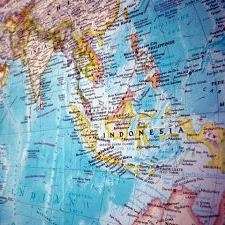Study finds democracy a matter of location

New research suggests understanding the uneven distribution of democracy in Asia may depend more on geography than political theory.
Professor Benjamin Reilly, Dean of the Sir Walter Murdoch Graduate School of Public Policy and International Affairs, said traditional theories of democratic development have proven lacking for the Asian region.
"The vast political and economic advances in Southeast Asia in recent years should be a showcase displaying the positive link between development and democracy," Professor Reilly said.
"Yet the long-standing belief that democracy is more likely to occur in well-off countries compared to poor ones has been turned on its head.
"Democracy is weak or absent in some of the region's richest states, such as Brunei, Singapore and Malaysia, but present in poorer ones, such as Indonesia, the Philippines and Timor-Leste.
"Political scientists have been at a loss to explain this tendency using traditional analyses, such as the role of domestic elites, state structures or money."
Surprisingly, Professor Reilly came up with an intriguing explanation by simply stepping back from the map.
He found that the distribution of civil liberties and political rights across Southeast Asia followed a striking spatial pattern: states become more democratic the further they are geographically located from mainland China.
To explain this, Professor Reilly considered the region's history prior to European colonisation, during which China permitted trade relations with its neighbours to the south in exchange for a 'tributary' system.
"Near countries on China's border, such as Vietnam, were required to send tribute every three years. More distant countries were required to send tribute only infrequently," Professor Reilly said.
"The tribute itself, usually consisting of local luxury goods, was less important than the symbolism of ritual submission to the Chinese empire. China very much had interest in asserting influence in its backyard."
Professor Reilly said this active-passive engagement could be seen again under Mao, with buffer states such as Cambodia, Laos and Vietnam enjoying Chinese support, and is present in Beijing's continued preference for familiar nondemocratic regimes, particularly if they share China's quasi-communist model of governance.
He noted that his geographical-historical theory is supported by the fact that all maritime states in Southeast Asia, aside from Brunei, are democratic, and that countries such as Indonesia and The Philippines have had no historical kingdom-to-empire legacy with China.
'Southeast Asia: In the Shadow of China' has been published in the Journal of Democracy.
More information: Read the paper: www.journalofdemocracy.org/art … st-asia-shadow-china
Provided by Murdoch University
















